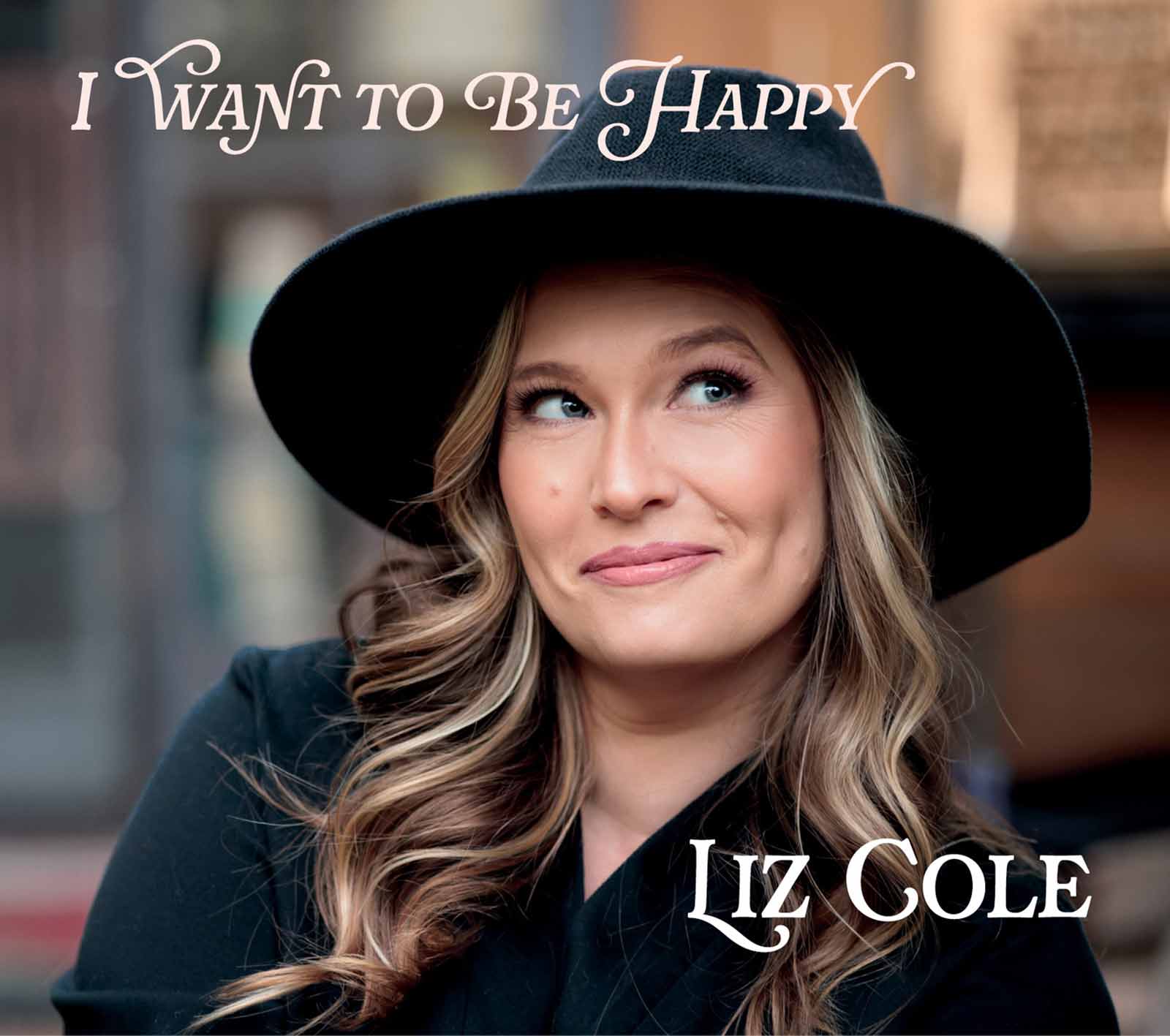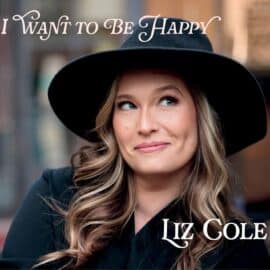| Jazz |

Sometimes, even when an album is made up almost entirely of standards, the experience of listening has little to do with the songs themselves and everything to do with the personality at the center. Liz Cole’s new release is exactly that kind of record, one that feels less like a set of familiar tunes than a window into an artist’s world.
Cole is not, first and foremost, a singer in the traditional sense. She is, rather, a character, someone whose presence on record is as much theatrical as musical. She approaches jazz not with solemn reverence but with a mischievous spirit, a kind of wink that lets you know she’s fully aware of the absurdities and joys of performance. That sense of humor makes itself known from the opening track, a version of “I Want To Be Happy.” Instead of delivering the lyric as an uncomplicated expression of joy, Cole leans into irony, feigning total disillusionment. The result is sly, deadpan, and unexpectedly funny. And yet, far from a gimmick, it feels true to her broader philosophy: that jazz is as much about play as it is about polish.
What makes the album especially compelling is the company Cole keeps. Over the course of her career, she has surrounded herself with a dazzling array of collaborators, and here she draws from a constellation of top-tier musicians. The list reads like a roll call of West Coast jazz excellence: guitarist Larry Koonse, drummer Joe LaBarbera, pianists Otmaro Ruiz, Jacob Mann, Todd Hunter, and Randy Porter; bassists Darek Oles, John Wiitala, Corbin Jones, Edwin Livingston, and John Leftwich; percussionist Aarón Serfaty; keyboardist Carey Frank; pianist David Arnay; and, in a burst of full-band brilliance, Gordon Goodwin’s Big Phat Band. Each brings a distinctive voice, but all seem to understand exactly what Cole is after: a kind of stylistic shapeshifting that allows her to slip in and out of moods, characters, and eras.
What holds these disparate textures together is Cole’s voice. It is not the voice of a torch singer intent on perfection, nor the stylized croon of a vintage revivalist. Rather, it is a voice carefully crafted, one that carries traces of her musical upbringing and her instrumental training. “I grew up in a family of musicians in California,” she explains. “My parents introduced me to everything from Bartók to Blue Mitchell, and one of my favorite toys was a box of rhythm instruments my father kept in the hall closet. No wonder I picked up the trumpet at age nine and played it until my first lease explicitly stated ‘no horns.’”
That trumpet background is more than just a biographical footnote. It is audible in the way she shapes her sound: phrases pushed and pulled like horn lines, breaths taken as if they were part of a brass section’s phrasing, notes bent and shaded with an instrumentalist’s ear. It explains, too, her instinct for performance, how she can shift from vocalist to actress in the space of a line, delivering not just melody but character. Cole doesn’t merely sing lyrics; she inhabits them, sometimes tenderly, sometimes with broad humor, sometimes with the bittersweet nostalgia of someone who knows how fragile happiness can be.
The effect, across the album, is cinematic. One hears not only a collection of songs but also the suggestion of scenes, vignettes, fragments of story. At moments, the music leans toward the sound of a Broadway score, with Cole adopting a theatrical tone that recalls the golden age of American musicals. That makes sense once you know her history: she directed and edited the first video for pianist Hans Groiner, a project that revealed her comfort working with imagery as well as sound. Listening to her album feels almost like watching a film montage, each track cut together with a sharp sense of timing and atmosphere.
And yet, for all its theatricality, there is something deeply sincere about this project. Cole’s voice carries tenderness, poetry, and nostalgia in equal measure. She seems, on some level, to be searching for a way to make the past speak in the present. That may be why the album feels both rooted in tradition and somehow modern. The repertoire recalls a classic era, but the sensibility is unmistakably of today, ironic, self-aware, but still emotionally invested.
The result is a record that will likely appeal to two audiences at once. Jazz newcomers may find in it an accessible entry point, the kind of album that feels inviting rather than intimidating. Longtime aficionados, meanwhile, may be surprised to discover how much invention still lies within familiar standards. To call the project “conventional” would be misleading. In truth, what Cole has made is something closer to a personal statement disguised as a collection of covers.
Ultimately, what lingers is not just the sound of a singer, but the impression of a personality. Cole reminds us that jazz, at its best, is not merely a style of music but a mode of expression, one that encompasses humor, nostalgia, theatricality, and, above all, individuality. This album is a testament to that idea, and for those who have yet to encounter Liz Cole, it is as good an introduction as one could hope for.
Thierry De Clemensat
Member at Jazz Journalists Association
USA correspondent for Paris-Move and ABS magazine
Editor in chief – Bayou Blue Radio, Bayou Blue News
PARIS-MOVE, August 31st 2025
Follow PARIS-MOVE on X
::::::::::::::::::::::::
Track Listing:
I Want To Be Happy
Mean To Me
You’re Sensational
I’d Give A Dollar For A Dime
Love
Tú
Lobo Bobo
Things To Do (Passing Through)
Lazy River
I’m Still Here

